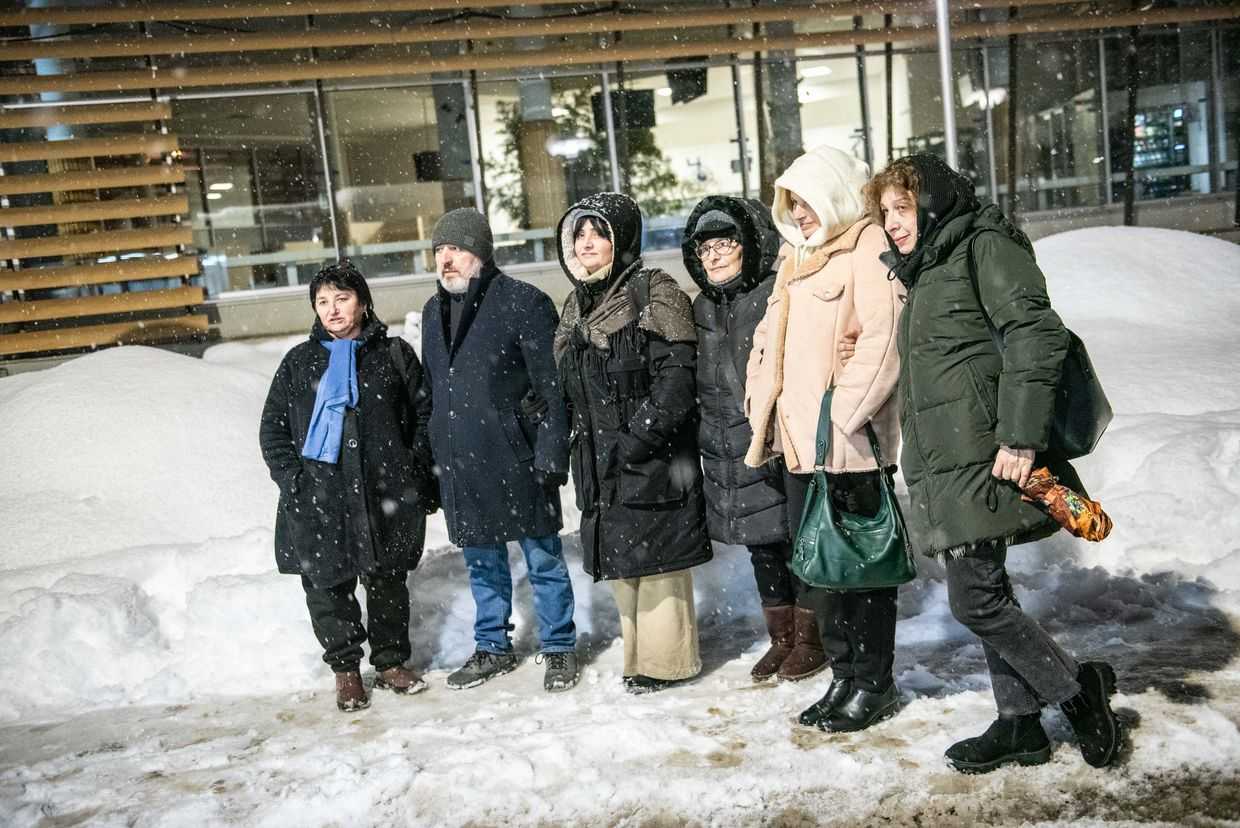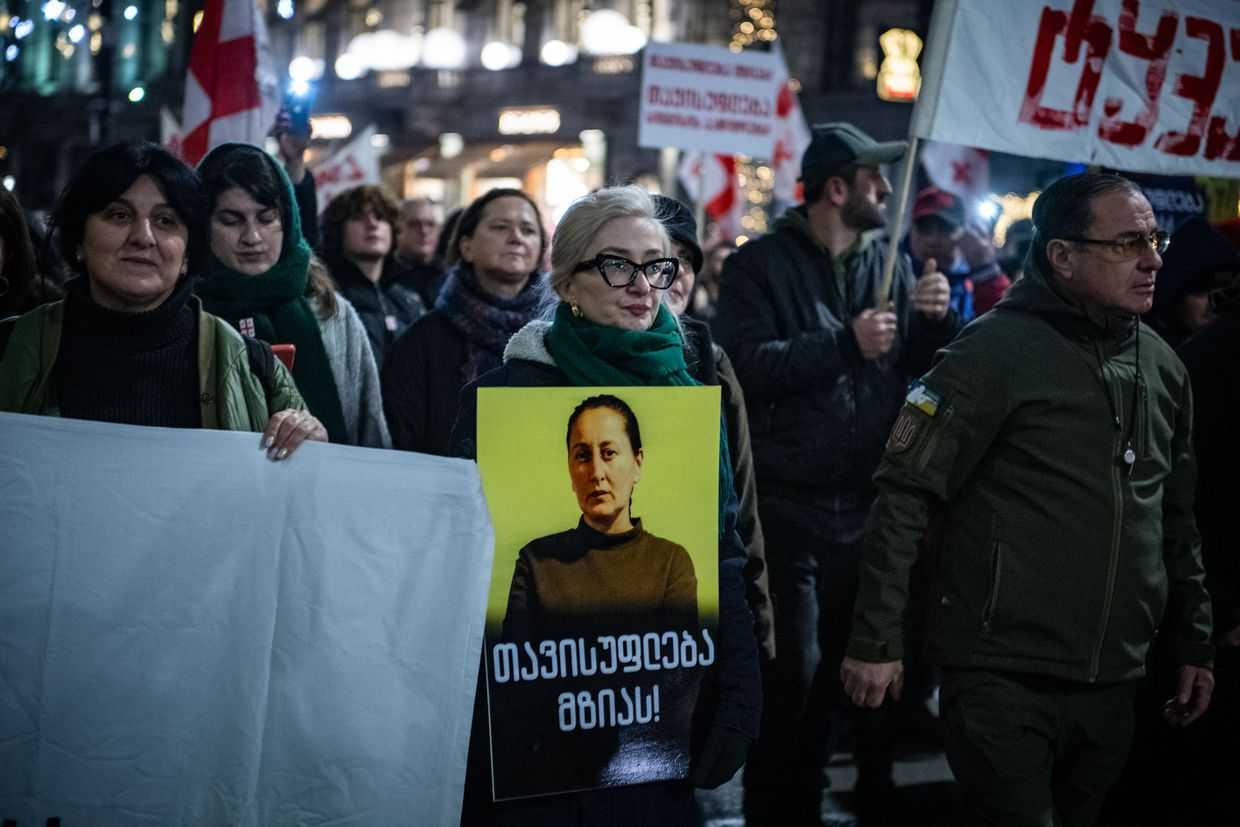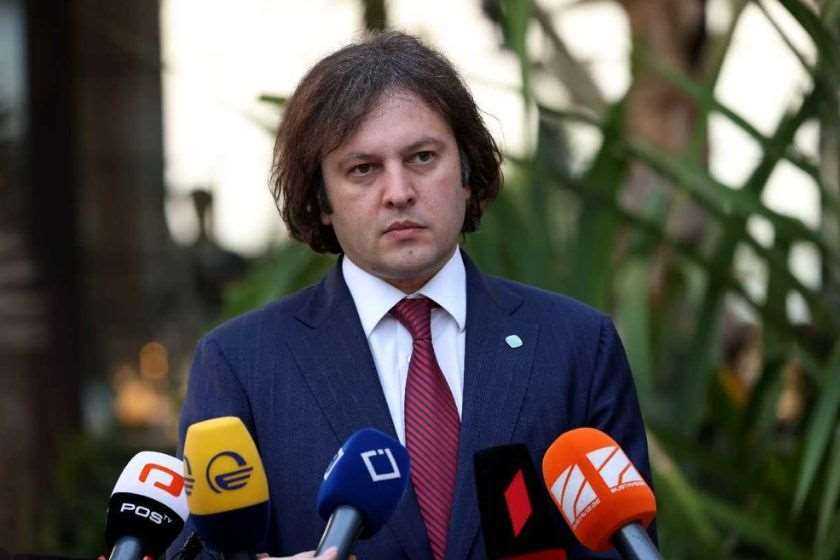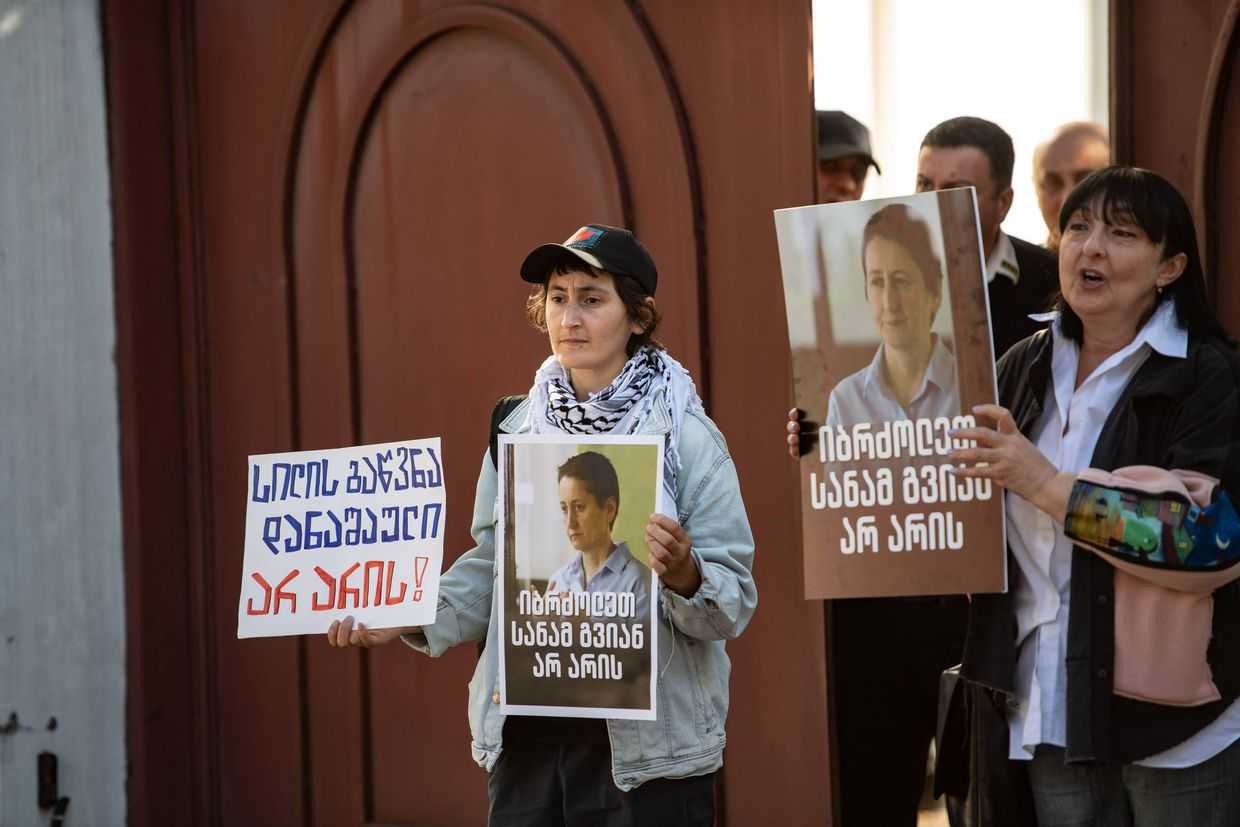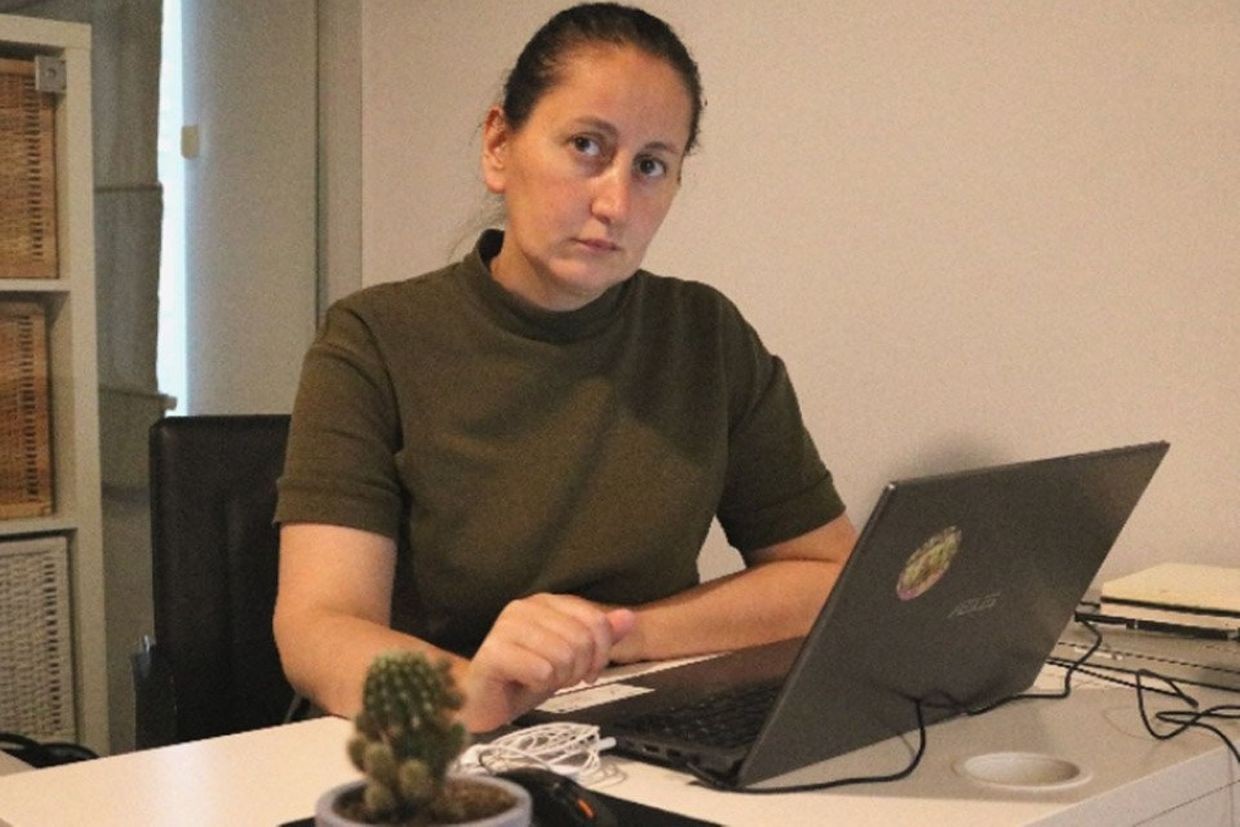
Mzia Amaghlobeli, the detained founder of independent Georgian news outlets Netgazeti and Batumelebi, has announced that she will be ending her hunger strike which lasted for 38 days.
The announcement was made through Batumelebi’s editor-in-chief, Eter Turadze, on behalf of Amaghlobeli on Tuesday.
According to the letter read by Turadze, Amaghlobeli wrote that ‘in the coming days’ she will try to resume eating with the help of doctors, citing as one of the reasons the recent tragic death of two minors in Batumi.
The two children — aged three and six — died after falling into a makeshift sewer ditch that was filled with water on Saturday. The incident is currently being investigated as a negligent homicide.
‘In light of the tragedy that occurred in Batumi, in the “City of Dreams”, where two minor children fell into a ditch and died, hearing the public’s concern for my health and life is incredibly difficult for me’, Amaghlobeli wrote.
Amaghlobeli thanked Temur Katamadze and Nikoloz Javakhishvili, who were detained during the demonstrations against the government’s EU U-turn and are on hunger strike in solidarity with her, and asked them to end their hunger strike as well.

‘I feel a special responsibility towards my like-minded people, colleagues, friends, and family. I do not want my hunger strike to weaken you. You must fight instead of me too’, Amaghlobeli wrote.
On Monday, Vivamedi’s clinical director, Zurab Chkhaidze, said that if Amaghlobeli does not end her hunger strike, her life may be in danger.
Following Amaghlobeli’s announcement, Chkhaidze said on the same day that the clinic will commence her treatment, calling her condition the ‘so-called refeeding syndrome’.
‘This is a very serious syndrome that develops after a long period of hunger strike and refeeding. The clinic and the team of doctors are ready to begin the so-called refeeding process’, he said.
Amaghlobeli was first detained on 11 January for hanging a poster at a pro-European rally in Batumi, but was later released that same day.
Within several minutes of her release, she was detained again on charges of slapping Batumi police chief Irakli Dgebuadze and has been on hunger strike in protest against her detention since then.
The Prosecutor’s Office considered the slap an ‘attack on a police officer’ — a criminal offence which carries a prison sentence of four to seven years.
Police give ‘identical’ testimonies against Amaghlobeli
According to the Georgian Young Lawyers’ Association (GYLA), following the arrest of Amaghlobeli, Dgebuadze tried to physically restrain her several times and spat in her face.

Netgazeti has analysed the testimonies given by Dgebuadze and four other law enforcement officers describing Amaghlobeli’s detention. According to the media outlet, Dgebuadze ‘ignored’ the fact that as soon as Amaghlobeli left the department’s yard, a stampede began at the entrance, which led to the detention of citizens by the police.
‘At that time, the police officers also violated Mzia Amaghlobeli, pushed her down, during which she lost one of her shoes and sustained injuries to her limbs. He also does not mention that he had verbally abused Mzia Amaghlobeli’, the outlet reported.
‘Irakli Dgebuadze links Mzia Amaghlobeli slapping him to the fact that she was administratively detained shortly before.’
‘As a result of Mzia Amaghlobeli’s blow, I have visible redness on my right cheek and right ear. I experienced pain during the blow […] Mzia Amaghlobeli pulled my police jacket with her hand, but the jacket was not damaged’, Netgazeti quoted him as saying during his testimony.
Four other police officers — Vakhtang Bolkvadze, Davit Antadze, Archil Antadze, and Tsotne Karvelashvili — all reportedly gave identical testimonies against Amaghlobeli.
The four police officers were questioned on 23 January, while Dgebuadze was questioned on 12 January.
Netgazeti said that the ‘chronology of the interviews [of the four police officers] was the same; [their] vocabulary; sentence structure; words used to describe what happened; details that were emphasised’.
‘One gets the impression that the text of the interview of different police officers was written by one person’, said the media outlet.
Georgians throughout the country have been protesting for more than 80 days against the government’s policies and the announcement the ruling party would halt the country’s EU accession process. The political crisis followed October’s parliamentary elections, which according to official results, gave Georgian Dream a large majority, with 54% of the vote.
Human rights activists in Georgia have suggested that more than 400 people could have been detained during pro-EU demonstrations against the government in November and December — a large number of whom claim that they were subjected to physical or psychological abuse by law enforcement officers.





